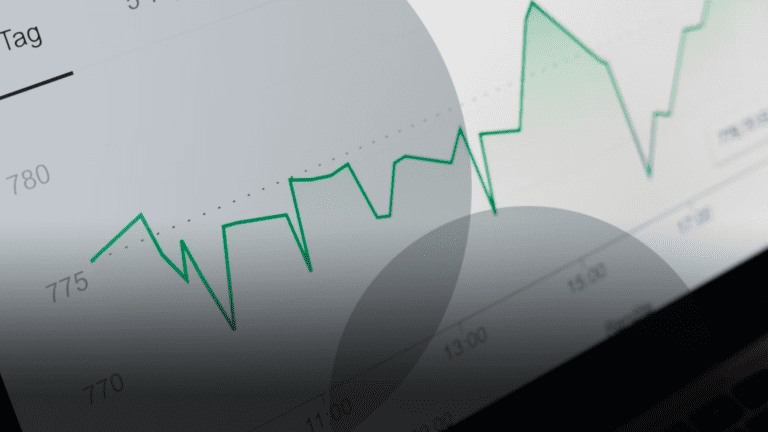
Anna Corbett
Director of Client Success
Anna is responsible for all client delivery, and is our resident data and analytics lead.

You can't start your next digital marketing campaign by setting your marketing goals. If your campaign is going to succeed, you need a discovery phase.
Imagine your next digital marketing campaign. Your mind probably went straight to what you’d like to achieve.
Maybe you want to:
This is where you need to ask “why?”
Why do you want to increase your paid ad conversions? Why does your CEO need more followers? Why do you want more site visitors?
“What do you mean, why?” you might think. “Who doesn’t want to get more conversions, more followers, more site traffic?”
That instinct to set marketing goals straight away harms your chances of success – in the short and the long-term. Instead of hitting the ground running, you’ll land with a thud.
When asked why you’ve set your goals, you might not have a clear answer. That’s far more common than you’d think – and it’s okay. It’s better than okay. It saves you time you might have spent on fruitless marketing activity.
By setting your marketing goals first and trying to come up with a campaign to help you meet them, you’re doing things back to front.
You need to take a step back to what we call “The Discovery Phase.”
The Discovery Phase is an intense but extremely important first step we take with all of our clients.
It involves:
The temptation is to hit the ground running by immediately kicking things off with marketing activity – launching a paid ad campaign, writing articles, sending a flurry of social media posts.
This part of the process ensures that your digital marketing activity isn’t dead on arrival and that, in the long term, it’s going to help you meet valuable goals.
Imagine that you work at an energy company.
The company’s clients are mostly brick and mortar retail businesses. You install electric car chargers in their car parks to encourage more foot traffic.
You’ve been planning a digital marketing campaign which you’re hoping to roll out over LinkedIn and on your website. The campaign comes in two parts:
You film and edit the videos. You write the articles. In theory, you should be good to go. There’s just one problem.
Because you haven’t gone back to that basic question – “why?” – your campaign isn’t actually going to help your company succeed.
In this example, your clients are other businesses – not consumers directly. Your videos and articles look great, but they’re targeting consumers. It’s retail businesses that you need to convince if you want to gain more clients.
Your videos and articles don’t address that audience’s major concerns. Unlike consumers, those concerns might include how much your services cost, how much foot traffic clients can expect, how long installation takes and how you’re helping them meet environmental goals by installing chargers.
Not only that, but an audit of your website and LinkedIn profile might show that clients and potential clients (i.e. retail businesses) are the ones visiting your website and LinkedIn profile, not electric car drivers. You’re targeting the wrong people, with the wrong content, in the wrong places.
Your videos and articles could be very high quality, but because you haven’t asked “why” you’re doing this activity and you haven’t had a Discovery Phase, these videos and articles aren’t going to help your business reach its goals.
That might sound far fetched. Who would misalign their campaigns and audiences like that? Well, we see it all the time. It’s the most common problem with campaigns, apart from businesses projecting their own goals onto their audiences… but that’s for another article.
You need to lock down who your audiences are, where they are, and the right activity to target them directly.
But what then?
I’m not telling you to blindly trust marketing agencies, to scrap all your ideas and let them tell you what to do. Quite the opposite.
For your digital marketing to be successful you need to keep asking “why?” every step of the way.
Why are we continuing this activity? Why is this part of our campaign performing better than another part? Why are we targeting this audience?
These are questions we’re always asking ourselves and reporting back to our clients about. They’re questions you should be asking us as well.
In the Discovery Phase, we can help you get your digital marketing activity off to the right foot with the right goals and the marketing activity designed to meet them. Our long-term aim, however, is to make your digital marketing more effective and efficient as time goes on.
To improve your return on investment over time, we continually interrogate the success of your campaigns. We’re always in the Discovery Phase, even after the initial report. This kind of activity can feel like it’s slowing things down. In reality, it’s saving you time. By starting with the Discovery Phase, you don’t waste time on marketing activity that feels right but isn’t. It helps you get your digital marketing campaign off to a strong start – but it also sets the groundwork to improve your return on investment over time.
For help with your next digital marketing campaign, email me at [email protected].

Director of Client Success
Anna is responsible for all client delivery, and is our resident data and analytics lead.
View my other articles and opinion pieces below
Google’s Performance Max just got a major upgrade. Anna Corbett breaks down how new channel-level reporting helps you make smarter, data-driven decisions about your ad spend.

Base Creative’s Anna Corbett explains how we use AI to boost campaign performance, from analytics to client conversations – without losing the human touch.

On 1st July, Universal Analytics will stop processing data. UA will be permanently replaced by Google’s new reporting platform, Google Analytics 4. To help you prepare for this transition, we have compiled all of our GA4 information into one place, ranging from guides to FAQs and deep-dives into specific features including cookie-less tracking, API quotas […]

Collecting data is exciting. There’s a big buffet of data out there to choose from, with companies analysing everything from scroll speed to mouse movement. Finding new ways to learn about your site visitors is a great technical challenge. Okay, maybe that’s just me. But whether you find it exciting or excruciating, collecting data on […]
